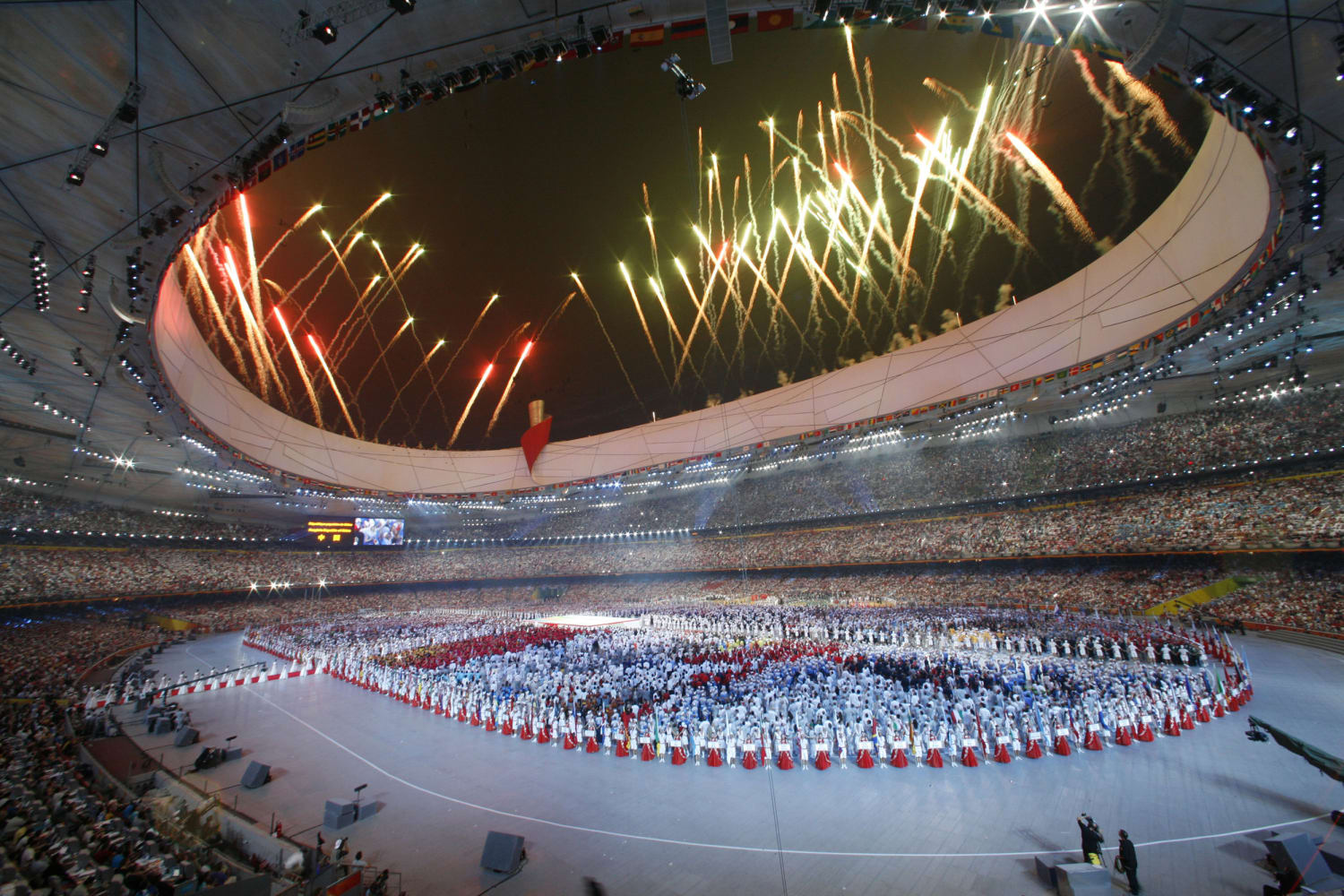Xi’s forcefulness contrasts with his more emollient predecessor Hu Jintao, who stepped down as president in 2013.
Under Hu, China’s government worked to be seen as a stakeholder in the U.S.-led global system, according to Zhao Ma, associate professor of modern Chinese history and culture at Washington University in St. Louis. But today’s China rejects the liberal democratic order and takes a more skeptical view of the free market system as espoused by the U.S., he said.
Shaping Beijing’s worldview is the belief that the U.S. is doing whatever it can to contain the country’s rise and weaken the Communist Party’s rule, he added.
The global context
The world feels very differently about China than it did 14 years ago.
Despite concerns about China’s human rights record, the 2008 Olympics were greeted with an immense amount of global goodwill — and an intense interest in China’s lucrative consumer market. There were sunny predictions that hosting the Olympics would bring China further into the international fold and perhaps even propel it on the path to democracy.
But China did not turn out the way the Western world in particular expected. Over the years, global attitudes toward China have been hardened by its growing authoritarianism at home, its aggressive “wolf warrior” diplomacy overseas, and the pandemic.
Its rights record has also caused friction with the West. In December, the White House announced the diplomatic boycott of the Olympics, citing human rights abuses including a campaign of repression against Uyghurs, a mostly Muslim ethnic minority in the western Chinese region of Xinjiang, that the U.S. government and others have described as genocide.
A recent report by Human Rights Watch detailed further abuses involving the autonomous region of Tibet, human rights defenders, religious freedom, “hostage diplomacy,” mass surveillance and censorship.
Last year, the Pew Research Center said unfavorable views of China were at or near historic highs in most of the 17 advanced economies it surveyed. Recognizing this, China is increasingly focusing its efforts and investment in the developing world, where it is seen as an alternative model of governance.
That shift is apparent in China’s response to the diplomatic boycott, which has been joined by Australia, Britain and Canada. In a call with Secretary of State Antony Blinken on Jan. 27, Chinese Foreign Minister Wang Yi warned the U.S. to stop “interfering” with the Winter Olympics.
“Pressure will only make the Chinese people more united, and confrontation will not stop China from becoming stronger,” he said, according to a statement from the Foreign Ministry.
The boycott is only one source of tension as the U.S. adjusts to China’s changing role in the world.
“Chinese ambitious and expansionist foreign policy challenges the U.S. hegemony in the current international order,” said Jung Woo Lee, who studies sport policy at the University of Edinburgh in Scotland. “The U.S. wants to preserve the existing power balance in world politics.”
NBC News has contacted the Chinese Embassy in London for comment. In the past, China has said countries should not interfere in the domestic affairs of others and accused the U.S. of working to undermine its growth and power.
Though the two countries’ interests converge in some areas like climate change, the Biden administration has aggravated Beijing by keeping Trump-era tariffs in place, rejecting China’s maritime claims in the South China Sea, and showing strong support for Taiwan, a self-governing democracy that Beijing claims as its territory.
“Beijing 2022 can turn out to be a theater where the clash between the U.S. and Chinese interests plays out,” Lee said.
The government’s tightening grip
When Beijing was awarded the 2008 Games, rights activists also raised concerns and called for a boycott. Officials from both China and the International Olympic Committee countered that hosting the Games could actually advance human rights in the country.
As a show of good faith, Chinese officials loosened restrictions on foreign journalists and set up Olympic protest zones, though the latter were never used.
This time, no one is making any claims that the Olympics will benefit human rights; when Beijing was awarded the Winter Games in 2015, IOC President Thomas Bach simply described it as a “safe choice.”
Rather than improving, China’s rights record has worsened significantly since 2008, said Yaqiu Wang, a senior China researcher at Human Rights Watch. Most prominent is the internment starting in 2017 of an estimated 1 million Uyghurs and other ethnic and religious minorities at government “re-education” camps, where detainees have reported cruel and degrading treatment, including torture.
Chinese authorities maintain that their actions are aimed at stamping out terrorism and deny allegations of mistreatment.
Room for dissent is also shrinking rapidly in Hong Kong, particularly since Beijing imposed a national security law in 2020 after months of pro-democracy protests in the Chinese territory. Civil society groups have disbanded, newspapers have shut down and most of Hong Kong’s democratic politicians are in jail, have resigned from politics or have moved overseas.
Chinese authorities have said the security law was necessary to restore stability after the protests.
Meanwhile, foreign journalists face “unprecedented” obstacles in covering mainland China, according to a new report from the Foreign Correspondents’ Club of China. In the last two years, a number of American and other foreign journalists have been expelled.
Source: | This article originally belongs to Nbcnews.com










